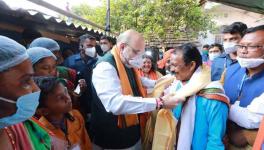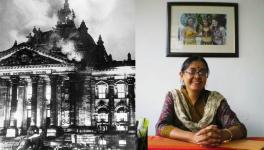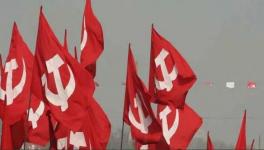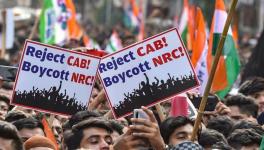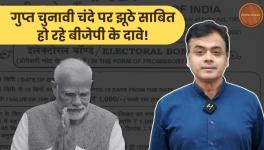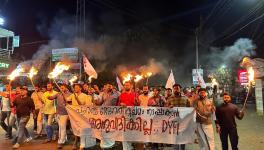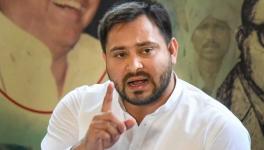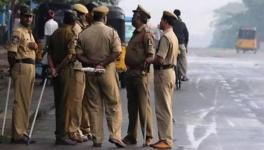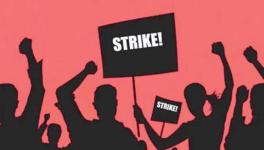We Are Facing Fear of Disenfranchisement, Won’t Move Half an Inch: Shaheen Bagh to Mediators
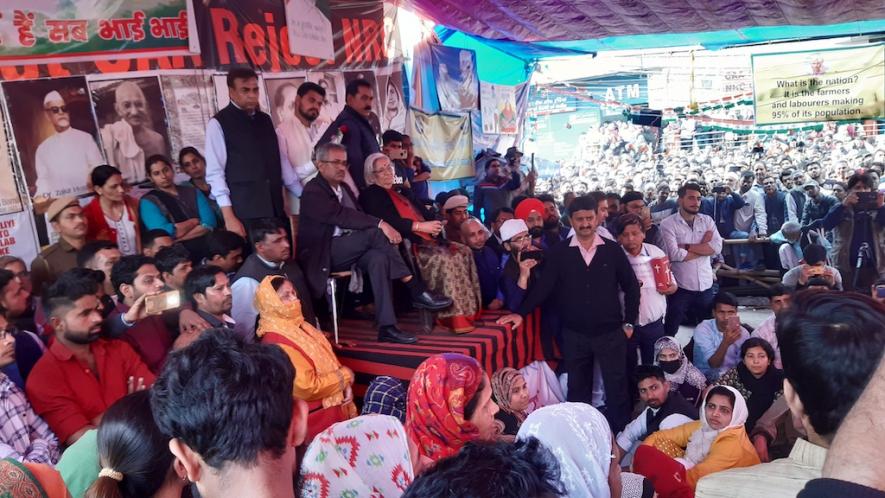
New Delhi: In what seems to be a positive outcome of the first round of negotiation between Supreme Court-appointed mediators Sanjay Hegde and Sadhana Ramachandran, and anti-CAA protesters at South East Delhi’s Shaheen Bagh, the agitators gave an indication that they are ready to adjust a bit if the police ensure their safety and security.
The demonstrators made it clear before the panel comprising two senior advocates of the apex court that they won’t shift the protest site, but are willing to compress the protest venue and open the other side of the road for traffic movement.
The protesters have been staging an indefinite sit-in at GD Birla Marg (Road Number 13A, which connects Noida in Uttar Pradesh-Delhi-Faridabad in Haryana) since December 15, 2019, demanding the government to roll back the controversial CAA, the National Population Register (NPR) and the National Register of Indian Citizens (NRIC). The blockade has led to traffic issues for lakhs of commuters who use the road on daily basis.
As the interlocutors reached the protesters, they were greeted with loud claps and were presented with rose bouquets. Hegde read out the order first, adding that they hoped to resolve the matter.
Ramachandran then said, “Shaheen Bagh resolution should become an example for the world. The Supreme Court has said that people have a right to protest. The democracy works on expressing views but there are lines and boundaries for it. You have all the right to protest but others’ rights should also be protected. Since it is your protest, therefore you will give the solution.”
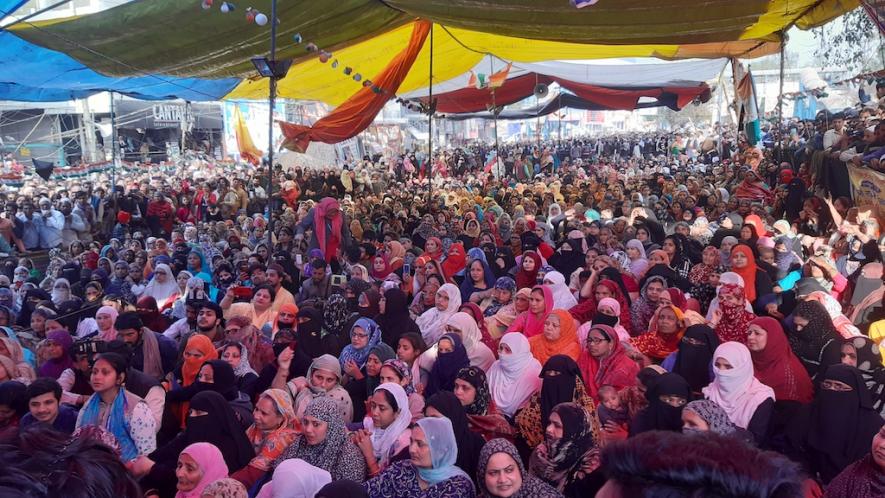
She also raised several questions, “Will we want our rights to be taken away? Will we want our children to not go to school? Will we want that patients don’t have access to hospitals? Will we want people to face inconveniences?”
To which the crowd replied in the negative.
She then expressed her wish to have an interaction with the protesting women, beginning with the famous ‘dadis’.
Asma Khatoon, 92, told the panel, “We, too, don’t want to sit on roads day and night. We are doing this to save our Constitution. The CAA is against the secular fabric of our Constitution. If the government accepts our demands, we will vacate the place without any delay. Only a small stretch of the road is blocked because of our protest. It is the police who have blocked the other side of the road and all other alternative routes.”
Also read: Shaheen Bagh Tells SC-appointed Mediators: Revoke CAA, Stop NPR-NRC
She added that they would not vacate the road till their demands are met, but they are willing to open the other carriageway if the administration takes responsibility of the safety and security of the demonstrators.
“Initially, we did not block the other side. But following incidents of bullet firings, we had to do that. If someone opens fire at us, what will we do? We cannot trust the police because they acted as mute spectators when armed men opened fire at us and protesting students of Jamia Millia Islamia. We caught so many trouble makers and handed over to the police, but they were let off. If it continues, how can we trust cops? If the police ensure security, we are willing to open the other side,” she said.
Then another ‘dadi’ Sarwari Begum held the microphone and told the panel, “We have blocked a small part of the stretch (around 150 metre on one side of the road), the rest has been blocked by the police. First ask them to open all the blockades they have put. There are several alternate routes that connect Delhi with Noida. As far as movements of ambulance and school vehicles are concerned, we want to make it clear before you that no one is blacking ambulances and school buses. It’s a lie to defame our protest.”
Lambasting Union Home Minister Amit Shah for saying that the government will not move even an inch, she said, “We want to tell the government that we have also resolved that we will not move half an inch. We chased away the British, who are you (the government)? When we had voted in the 2019 Lok Sabha elections, we were countrymen. But now, we have become traitors and infiltrators.”
Prakash Devi, another protester, said the women kept sitting in extreme weather, but nobody from the political leadership bothered to visit the site and initiate a dialogue. Instead, they were maligned. “Road blockade is a minor problem which can be solved easily if the government wants. They should have come and engaged in talks,” she said.
Two young girls were also appreciated by the panel because of their reasoned and well-articulated arguments. One of them said, “We are sitting here for our rights. Instead of acknowledging and clearing our doubts, we were defamed, maligned and abuses were hurled at us. A section of the ruling dispensation said we are sitting here because we get Rs 500-700 for sitting here in shifts. Others said we are terrorists. The government should be ashamed.”
She broke down and asked the mediators, “It is being argued that people are facing inconvenience. Are we the people of India? Is our inconvenience lesser than those who are unable to use the road? We are out on the road because the government is not listening to us. ‘My way or go away’ attitude of the government will not work. In democracy, dialogue is the only way to resolve issues. We are thankful to the court that they listened to us.”
Also read: Shaheen Bagh: SC Appoints Advocate Sanjay Hegde as Interlocuter, Wants Agitators to Adjust a Bit
After listening to her, Hegde replied, “Liberty lies in the heart of men and women. Till we have youth like you who are out on the streets with the sacred book of Constitution in their hand, we will remain independent. I really appreciate your intellect and articulation.”
She once again asked the panel, “Why have we been so ‘otherised’? Aren’t we worthy of being heard? We are scared because we are seeing the suffering of people in Assam. Those who have been left out of the final NRC are running from pillar to post to prove their citizenship. The threat of being lodged into centres is looming large on them. You (the government) talk about women empowerment, but when we the women are fighting for Constitution, we are maligned. What has not been said about us? The media is maligning us because of our identity. We are branded as radicals. Why? In a secular democracy, we have rights to dress as we want. We are radicals because we wear veil?”
“We are facing existential crisis. How dare they (the government) question our identity and citizenship. Shame on them. The soil here has the blood of our ancestors. We are traumatised, I have a written test tomorrow but I am unable to prepare. We are not able to sleep. We, too, talk about when this will all end. If we end our protest, we will put our existence at stake,” she concluded.
Another young protester told the panel, “The government says that the CAA is aimed at granting citizenship, not to take it way. We urge them to come here and explain it to us. We will return home. The Prime Minister says that no discussion has been held on NRC, but the Home Minister talks about chronology. In Parliament, the government said there is no decision yet on the nationwide NRC. It means it has not been taken so far, it will be done later because the NPR is the first step towards NRC. The officer who will come to us to collect details has been given the power to doubt the information submitted to him. It scares us.”
She added that even though the government says ‘sabka saath, sabka vikas, sabka vishwas’ (together with all, development for all, confidence of all), but “why are we feeling it is ‘sabka vinash’ (destruction of all)?
She said, “We are facing the fear of disfranchisement, which is a civil death. We are so depressed that we want to end our lives. But it is not permissible. Zillat ki zindagi se maut achchi hai (death is better than living a life without dignity).”
Prakash Devi, another protester, told the panel they (the government and its proxies) call the Shaheen Bagh protest mini-Pakistan. “No it's not mini-Pakistan. It is Hindustan. We thank Prime Minister Narendra Modi who united us by bringing this law,” she said, amid loud claps.
She reiterated that the protesters also acknowledge others’ rights, but it is the government which is not trying to find out a solution. “We are fighting for a bigger cause. Traffic problem cannot be compared with it. We have never blocked ambulances or school vehicles. We have even helped funeral processions to pass respectfully. Shaheen Bagh protest is the epicentre of the nationwide agitation against the CAA, the NPR and the NRC. If we withdraw, it will demoralise people who are fighting against the black law. It will be an injustice to all those who gathered the courage to come out and stage peaceful and democratic protest. Therefore, we will not evict the place. But yes, we are willing to adjust and open alternative routes. If the government rolls it back, we will vacate the place in minutes,” she added.
Wondering why the government does not want to come there for dialogue, she said, “You (the panel) have come, we are talking. The media comes, we talk to them. Why are they (the government representatives) scared? Shaheen Bagh has become a bone of contention and our protest is being noticed. Why? Because of this blockade. If we leave and shift to some other place, there will be no importance of our protest. When a main road is blocked for the past 66 days, the government is not ready to talk. If we shift, how can we expect them to pay heed to our demands?”
Also read: Let’s Talk: NRC, NPR, Shaheen Bagh and More
Ritu Kaushik, who has been taking part in the protest for past 60 days, told the panel, “Qanoon janta ke liye hota hai, janta qanoon ke liye nahin (Laws are made for people, people are not made for laws). Protesting against a law is our democratic right and we are exercising it. This government is so undemocratic that it says that it won’t move even an inch and asks crores of protesters to end protests.”
She said the people who are out on streets would never withdraw if the government does not roll back the CAA. “We will break the trust of fellow protesters across the country if we withdraw this blockade for the sake small cause – which is traffic inconvenience. We expect the SC that it will also acknowledge our concerns and make a decision accordingly,” she concluded.
In the mean time, an ambulance passes on the other carriageway of the road. The crowd draw attention of the panel and said it’s enough to expose the lie.
Solicitor General Tushar Mehta had told the top court that there is a complete blockade and even the ambulance and school vans were not being allowed to pass.
The program ended as the panel said they would come again for talks till Sunday. The Supreme Court will hear the matter on next Monday, February 23.
Get the latest reports & analysis with people's perspective on Protests, movements & deep analytical videos, discussions of the current affairs in your Telegram app. Subscribe to NewsClick's Telegram channel & get Real-Time updates on stories, as they get published on our website.









